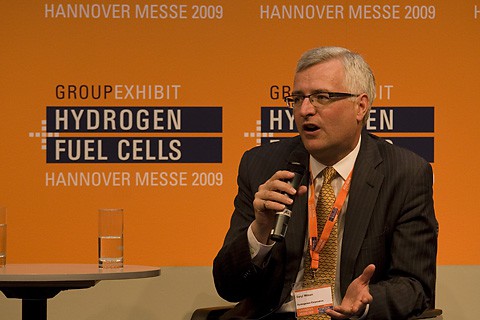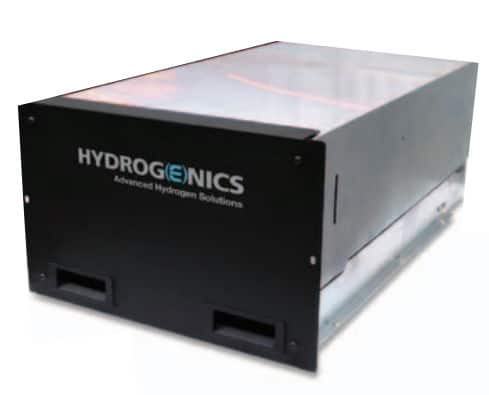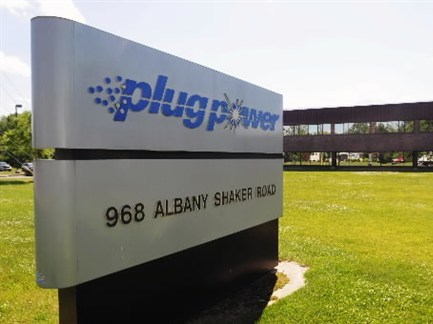Is Hydrogenics’ timing finally right?


The Tōhoku earthquake, subsequent tsunami and resulting nuclear incident have the world questioning the long term viability of nuclear power. While some say fears about nuclear power are overblown, many others say it is time for a renewed look at alternative sources of mass-scale energy.
The scope of the Japanese nuclear incident, which experts say is worse than the Three Mile Island crisis of 1979, the worst nuclear event in US history, means this debate is not mere idle talk, it’s already resulting in action, worldwide. Following the Japanese disaster German chancellor Angela Merkel shut down seven of the countries oldest reactors. And all German nuclear plants are scheduled to be shut down by 2036.
Countries such as Italy, Switzerland, China and Argentina have, to varying degrees, suspended nuclear energy plans. The larger challenge is what to replace nuclear, which produces 13% of the world’s energy, with? A myriad of choices, including solar, wind, geothermal and biogas, are candidates. But what about hydrogen fuel cells?
Hydrogen fuel cells were once all the rage in the automotive sector. But the technology was infamous for being wildly expensive, not just in the production of the fuel cells themselves, but in the infrastructure that would be required to make their use practical for drivers. The industry’s lack of ability to pull down costs became “…almost like a running joke” according to Mike Omotoso, powertrain analyst at automotive research firm J.D. Power and Associates. “Every 10 years, everybody says it’s 10 years away,”
But fuel cells, recently, have had something of a rebirth via their use in the Renewable Distributed Energy Generation, or RDEG market. According to Colorado based market research firm Pike Research, “stationary fuel cells offer enormous long-term potential.” For this reason Pike estimates the fuel cell market, which in 2008 generated just 38 megawatts, will to grow to 219 megawatts by 2013. Some suggest the time has come for suggest an greater emphasis on safe and decentralized energy supply using stationary fuel cells.
Shares of North American fuel cell makers were up across the board after the Japanese crisis. Shares of Vancouver based fuel cell maker Ballard Power (TSX:BLD) rose sharply in mid-March, as did Connecticut’s Fuel Cell Energy (NASD:FCEL), and New York’s Plug Power (NASD:PLUG)
Then there’s Hydrogenics. Mississauga’s Hydrogenics was founded in 1988, making it one of Canada’s longest serving, some would say longest suffering, alternative energy companies. The company designs hydrogen generation products based on water electrolysis technology and fuel cell products based on proton exchange membrane technology. High end stuff. Hydrogenics has spent a boatload of money on its technology, but has been a perpetual money loser. It’s losses were so staggering, in fact, that the company actually made $10.8 million selling $192 million worth of tax losses to Algonquin Power.
Shares of Hydrogenics did not immediately participate in the fuel cell rally that followed the events in Japan. But the stock has rallied in recent sessions, from $4.91 on March 29th to $6.96 on March 31st. The reason? On March 29th Hydrogenics reported results for its and fourth quarter 2010. The improved numbers gave investors a window into a company that may finally be ready to commercialize their technology into a much more receptive market. Hydrogenics fourth quarter revenue of $5.8-million was an increase of 38 per cent over 2009. More importantly, the company’s operating loss of $1.8-million was a decrease of 61 per cent from 2009. Hydrogenics full year revenue was $20.9 million up 11% from $18.8 million in 2009.
The numbers, though improved, are still a far cry from even fiscal 2008, when the company did nearly $40 million in revenue. But Hydrogenics president and CEO Daryl Wilson is quick to point out the company’s hefty order backlog, which reached $17.1-million at Dec. 31 and a “high level of customer engagement across multiple markets”.
Investors bidding up shares of Hydrogenics last week were no doubt optimistic the company could commercialize some of its stationary fuel cell technologies. Sprinkled amongst recent contracts wins for hydrogen fueling stations are installations of the company’s stationary and backup power systems. Last summer, Hydrogenics was selected to participate in a grid stabilization project by Ontario’s Independent Electricity System Operator. The study, said Wilson “will showcase the smart-grid capability of utility-scale hydrogen technology, which can and will be used for both grid stabilization and energy storage in the years to come.”
Share of Hydrogenics closed at $6.60 on Friday.
Nick Waddell
Founder of Cantech Letter
Cantech Letter founder and editor Nick Waddell has lived in five Canadian provinces and is proud of his country's often overlooked contributions to the world of science and technology. Waddell takes a regular shift on the Canadian media circuit, making appearances on CTV, CBC and BNN, and contributing to publications such as Canadian Business and Business Insider.


